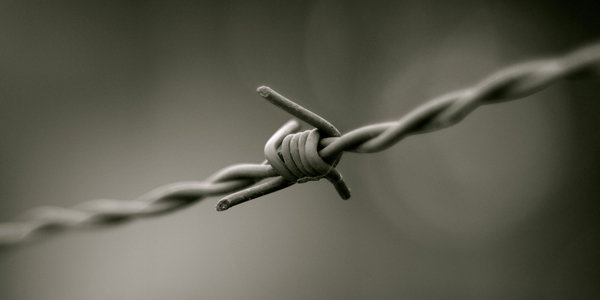PAKISTAN LODGES PROTEST AGAINST KILLING OF 'INADVERTENT CROSSER' BY INDIAN TROOPS, NO LET UP IN LOC STANDOFF
Hostilities continue along the Line of Control

NEW DELHI: Pakistan on Thursday summoned India’s acting High Commissioner in Islamabad to protest the alleged killing of an “inadvertent crosser” by Indian troops along the Line of Control (LoC).
A statement by Pakistan’s Ministry of Foreign Affairs reads:
“Ministry of Foreign Affairs summoned the Indian Acting High Commissioner, today, to lodge protest on the killing of a Pakistani inadvertent crosser, Touqeer s/o Shabbir, by firing of Indian Border Security Force (BSF) troops deployed at Tashpura Post.
Touqeer, along with two others, was cutting grass in Shakargarh, Narowal, when the three inadvertently crossed the international border. Indian BSF troops fired without any warning, injuring Touqeer, while the other two managed to return. Immediately, a Company Commander level contact was established by Pakistan Rangers to take over the injured Pakistani, but the BSF troops refused and took the injured across the fence. Later, he passed away in the custody of BSF troops.
The Government of Pakistan condemned the action of the BSF troops which was in violation of the Border Ground Rules. In its protest, Pakistan called upon India to respect the lives of civilians and refrain from indiscriminate firing, which has caused loss of precious human lives.
Yesterday, another civilian Muhammad Din s/o Sultan was killed by the Indian troops in Rawlakot near the Line of Control.
The Indian side was reminded that earlier an inadvertent crosser, Kala Khan, was shot dead by the Indian security forces on the LoC in August 2014. The incident had coincided with, reportedly, a BSF soldier’s inadvertent crossing who was treated well by Pakistani troops and returned safely as a gesture of goodwill.
The Government of Pakistan offers its condolences to the bereaved family of the victim.”
The statement comes as the two sides remain locked in a standoff along the LoC, reportedly exchanging a fresh round of fire a day ago. The two sides have been caught in a cross-border exchange this month, that has killed over 20 civilians and injured dozen others, in the worst violation to date of a 2003 ceasefire.
The firing has led to a dip in relations between the two countries, with Pakistan penning a letter to UN Secretary General Ban Ki Moon that invoked the UN to implement resolutions for a plebiscite in Kashmir.
The letter marked a major reversal of Pakistan’s position for over a decade, sending bilateral relations between the two countries plummeting. India reacted to the letter on Tuesday, with Foreign Ministry spokesperson Syed Akbaruddin dismissing the role of a third party. “The road to a peaceful and co-operative relationship between India and Pakistan runs from Islamabad via Lahore to New Delhi. If you divert that road to New York or elsewhere, it will not serve any purpose, because there is no place for third party in India-Pakistan relations.”
The letter was a clear move to internationalise the Kashmir issue. Penned by Pakistan’s National Security Advisor Sartaj, it stated, “As you are aware, the Jammu and Kashmir dispute is one of the long outstanding issues on the agenda of the United Nations Security Council, whose resolutions promising the holding of a plebiscite, under the auspices of the United Nations, for self-determination of the people of Jammu and Kashmir, remain valid though unimplemented to date. For decades, Pakistan has been reminding the United Nations and the international community to fulfill that promise, in the interest of durable peace and security in the region.”
The hostilities come on the heels of the cancellation of secretary-level talks over Pakistan’s decision to meet Kashmiri separatist leaders in August. The talks had signalled the prospect of renewed ties between the two countries, after Indian Prime Minister Narendra Modi invited Pakistani counterpart Nawaz Sharif to attend his swearing-in ceremony, with the two leaders meeting in New Delhi on the same occasion.
Speaking at the United Nations last month, Sharif said that India’s decision to cancel the talks had resulted in a “missed opportunity.” Modi, speaking at the UN the next day, responded saying that India was not opposed to talks, but would not participate “in the shadow of terror” and that it was upto Pakistan to “create a conducive atmosphere for talks.”



